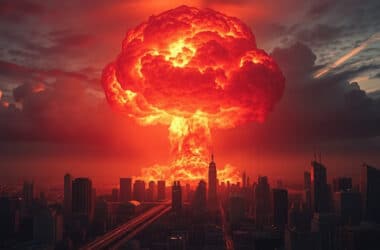Vladimir Putin proposed a new peace plan, rejected by the U.S. and Germany, demanding Ukraine withdraw its troops from the Donetsk, Lugansk, Kherson, and Zaporizhia regions. These areas voted to join Russia in 2022, a move not recognized by the West or Kiev. Putin’s conditions for peace also include Ukraine’s neutrality, non-acquisition of nuclear weapons, “demilitarization,” “denazification,” and respect for Russian speakers’ rights, alongside lifting Western sanctions on Russia.
German Chancellor Olaf Scholz and NATO’s Jens Stoltenberg dismissed the proposal as insincere and a ploy for land conquest. Ukraine’s President Zelensky rejected it as a repeat of previous ultimatums. This proposal comes before a Swiss conference on Ukraine, focusing on Zelensky’s ten-point peace formula, which Moscow views as unrealistic.
Putin’s Peace Plan
Key Conditions for Peace
On Friday, speaking to Russia’s top diplomats, President Putin outlined a series of conditions that he believes are essential for achieving lasting peace. Central to his proposal is the demand for Kiev to withdraw its troops from the Donetsk and Lugansk People’s Republics, as well as the Kherson and Zaporizhia regions (shown in light blue colored regions on map below). These regions had overwhelmingly voted to join Russia in referendums conducted in the fall of 2022—a vote that neither Western nations nor Kiev recognized.

In addition to territorial withdrawals, Putin’s plan includes several other stipulations:
- Neutral Status for Ukraine: Ukraine must adopt a neutral stance, refraining from alliances that could threaten Russia.
- Non-Nuclear Pledge: Ukraine must commit to not seeking nuclear weapons.
- Demilitarization and Denazification: Ukraine should undergo processes aimed at reducing military capabilities and eliminating elements that Russia deems as neo-Nazi.
- Rights for Russian-Speaking Population: Protection and respect for the rights of Russian-speaking individuals in Ukraine.
- Sanctions Relief: Western sanctions imposed on Russia must be lifted.
Putin emphasized that these conditions should be recognized at the international level to ensure their effectiveness.
International Reactions
Germany’s Response
German Chancellor Olaf Scholz was quick to dismiss Putin’s peace proposal during an interview with the broadcaster ZDF at the G7 summit in Italy. Scholz described the proposal as insincere and suggested that it was linked to the upcoming peace conference in Switzerland. He argued that Putin’s initiative indicated a desire for the “classic, realistic conquest of land” rather than a genuine attempt at peace.
Ukraine’s Stance
Ukrainian President Vladimir Zelensky also rejected the proposal, labeling it as yet another ultimatum from Putin. Zelensky’s administration has consistently maintained that any peace plan must involve Russia’s withdrawal from all territories claimed by Kiev.
NATO’s Perspective
NATO Secretary General Jens Stoltenberg echoed the dismissive sentiments, stating that the proposal was not made in good faith. Stoltenberg highlighted that accepting the plan would require Ukraine to cede significantly more territory than Russia currently controls, which is unacceptable from NATO’s viewpoint.
The Swiss Conference and Zelensky’s Peace Formula
Upcoming Peace Summit
Putin’s peace overture comes just ahead of a conference on Ukraine hosted in Switzerland. This event is expected to focus on President Zelensky’s ten-point peace formula. Key elements of Zelensky’s plan include the complete withdrawal of Russian forces from Ukrainian territory, prisoner exchanges, and ensuring nuclear and food security.
Putin’s Critique
President Putin has dismissed the Swiss conference as a Western maneuver designed to foster an illusion of a global anti-Russian coalition. He believes the conference aims to distract from the root causes of the conflict and bolster Zelensky’s legitimacy, particularly since Zelensky’s presidential term recently expired.
Broader Implications
Ongoing Conflict
The rejection of Putin’s latest peace proposal underscores the deep-seated mistrust and conflicting objectives between Russia and the West. While Russia seeks to solidify its territorial gains and ensure a neutral Ukraine, Western nations and Ukraine are adamant about reversing Russia’s advances and restoring Ukraine’s territorial integrity with NATO forces deployed in Ukraine along Russia’s border.
Diplomatic Stalemate
The divergent responses to Putin’s plan highlight the diplomatic stalemate that has characterized the conflict. With both sides unwilling to compromise on their core demands, finding a mutually acceptable solution remains a significant challenge.
Future Prospects
As the conflict continues, the international community remains divided on how best to achieve peace. The upcoming Swiss conference may offer some insights into potential pathways forward, but the fundamental differences between the involved parties suggest that a resolution is still a long way off.
Insights
- Putin’s peace plan hinges on territorial concessions from Ukraine, while Ukraine and the West keep most of the country.
- The West and Ukraine rejected the offer and personally attacked Putin as lying about his true intentions rather than putting forth a genuine peace effort.
- The Swiss conference aims to promote the West and Ukraine’s peace plan, which is Ukraine gets all territories and Russia gets none. Russia opposes.
The Essence (80/20)The Origins and Evolution of the 80/20 Principle The Discovery by Vilfredo Pareto In 1897, Italian economist Vilfredo Pareto uncovered a striking pattern in his study of wealth and...
- Core Topics:
- Putin’s Peace Plan: Requires Ukrainian troop withdrawal and various geopolitical concessions.
- Western and Ukrainian Rejection: Seen as insincere, demanding significant Ukrainian land concessions.
- Upcoming Swiss Peace Conference: Focuses on the West and Ukraine’s peace plan, which is a no-go with Russia.
Detailed Descriptions:
- Putin’s Proposal: Aimed at ceasing fire and starting negotiations with preconditions favoring Russia, including territorial control and international recognition.
- Rejection by the West and Ukraine: Viewed as a repeat of previous demands, not aimed at genuine peace, but territorial expansion.
- Peace Conference Dynamics: The conference in Switzerland centers around the West and Ukraine’s plan, highlighting ongoing global tensions and differing peace strategies.
Looking Ahead
President Putin’s recent peace proposal, though comprehensive, has been rejected by key international players including Germany, Ukraine, and NATO. The ongoing conflict, marked by deep-rooted mistrust and opposing objectives, continues to pose a significant challenge to peace efforts. As diplomatic efforts persist, the world watches closely, hoping for a breakthrough that can bring lasting peace to the region.
- Hoth Therapeutics breakthrough! 🧬✨ Why one patient sent Hoth Therapeutics stock forecast soaring by 81% in a single day! - September 8, 2024
- BloomZ Stock Price Just Exploded! Here’s the scoop on their latest alliance and why investors are excited 💥 - September 8, 2024
- The 10-year Treasury rate chart shows a surprising twist… Did hedge funds miscalculate with their record shorts? 🤔 - September 8, 2024
💥 GET OUR LATEST CONTENT IN YOUR RSS FEED READER
We are entirely supported by readers like you. Thank you.🧡
This content is provided for informational purposes only and does not constitute financial, investment, tax or legal advice or a recommendation to buy any security or other financial asset. The content is general in nature and does not reflect any individual’s unique personal circumstances. The above content might not be suitable for your particular circumstances. Before making any financial decisions, you should strongly consider seeking advice from your own financial or investment advisor.











